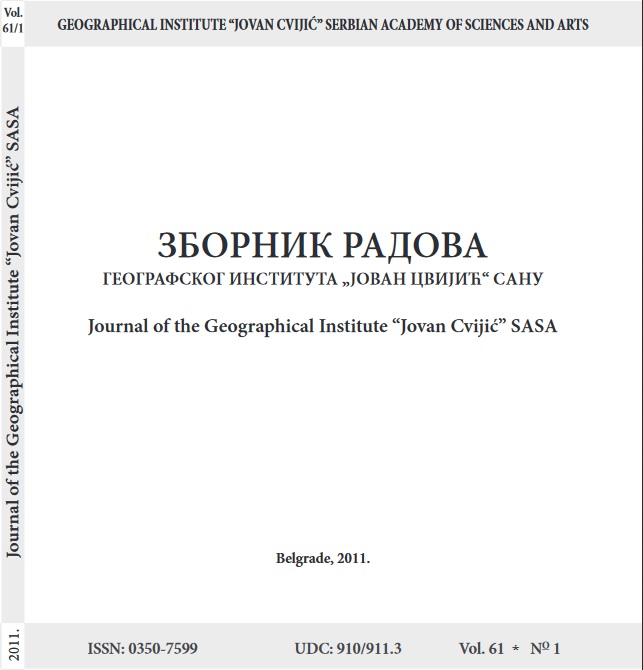COMPARATIVE GEOPOLITICAL ANALYSIS OF “HOTSPOTS” IN THE RUSSIAN FEDERATION AND IN THE REPUBLIC OF SERBIA
COMPARATIVE GEOPOLITICAL ANALYSIS OF “HOTSPOTS” IN THE RUSSIAN FEDERATION AND IN THE REPUBLIC OF SERBIA
Author(s): Nebojša VukovićSubject(s): Human Geography
Published by: Географски институт »Јован Цвијић« САНУ
Keywords: geopolitics; “hotspots”; separatism; the Russian Federation; the Republic of Serbia
Summary/Abstract: The Russian Federation and the Republic of Serbia have experienced internal challenges to their own unity and coherence for a long time. This work represents the analysis of these challenges, which can be defined, geopolitically speaking, as “hotspots.” Relying on the observations of Russian political scientists, the author of this work analysed the so-called “crisis potential” in four “hotspots” in the Russian Federation. In the Republic of Serbia, five areas are marked that emit instability and jeopardise (or can jeopardise) its unity, peace and prosperity. Certain similarities are found between the compared “hotspots”, and differences as well. The region of North Caucasus is marked as the most dangerous “hotspot” in the Russian Federation, which has not been completely solved yet by the Russian federal authorities, due to the constant terrorist attacks. The purpose of the attacks is to extort from Russia the withdrawal from the area and create conditions for the political independence. The author found a geopolitical analogy to the North Caucasus “hotspot” (Chechnya) in the Republic of Serbia on the territory of Kosovo and Metohija. In the conclusion, it is stated that, at present, disparate geopolitical processes are taking place in the two countries – the Federal Centre is strengthening in the Russian Federation and the Federal Subjects are losing their attributes of statehood, whereas in the Republic of Serbia, the centrifugal tendencies are gaining prominence that can completely fragment it.
Journal: Зборник радова Географског института "Јован Цвијић" САНУ
- Issue Year: 61/2011
- Issue No: 1
- Page Range: 61-83
- Page Count: 23
- Language: English

